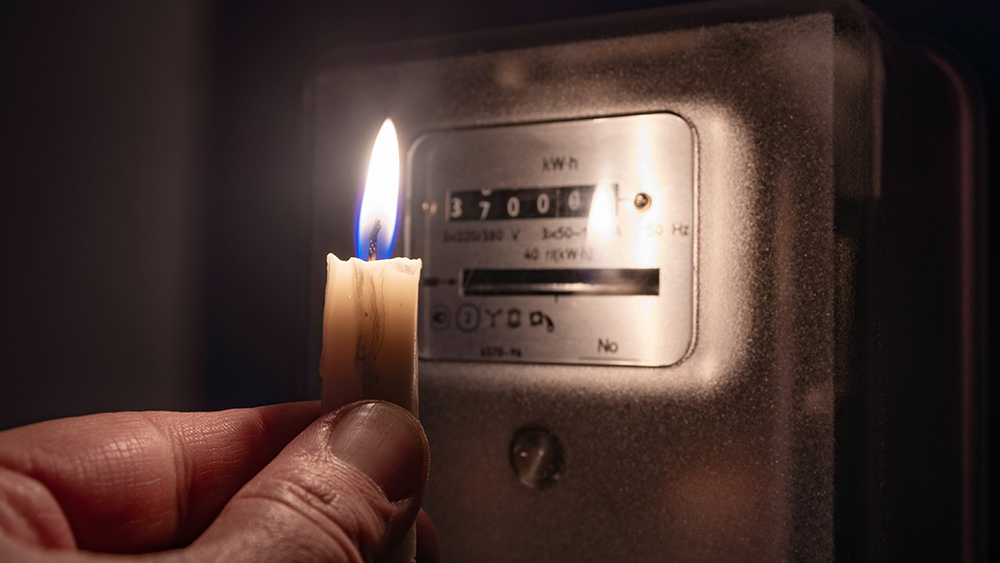A “failed transmission line” caused the entire nation of Ecuador to lose power this week.
The government says decades of underinvestment caused the nationwide blackout, which plunged some 18 million people into total darkness for several hours.
Roberto Luque, Ecuador’s public works minister, announced that the outage started around 3 p.m. local time at the 230,000-volt Milagro-Zhoray connector where it quickly spread across the grid. By about 6:40 p.m., responders were able to restore service to about 95 percent of the country.
Between 3 p.m. and 6:40 p.m., traffic chaos was reported in larger cities like Quito and Guayaquil. The subway system in Ecuador’s capital also suspended operations while schools in larger communities temporarily switched to remote learning out of concern for student safety.
?? – A widespread power blackout is reported in Ecuador after a “cascade disconnection” in the CENACE (Ecuador’s National Centre of Energy Control) systems.
In Quito, massive traffic jams are reported after public transport and traffic lights were shut down | @Florian99815909 pic.twitter.com/ImKo4140Qo
— Faytuks Network (@FaytuksNetwork) June 19, 2024
#BREAKING : A nationwide blackout in Ecuador caused the subway to collapse, leading to a dangerous situation for passengers.
The power outage forced people to evacuate and walk through subway tunnels in complete darkness.
?? #Quito #Ecuador #Blackout #Subway pic.twitter.com/kz06dLZaUO
— upuknews (@upuknews1) June 19, 2024
(Related: New York’s “zero emissions” energy plan for 2040 will likely result in blackouts across the Empire State and perhaps elsewhere throughout New England.)
Ecuador needs an energy boost
The worst blackout in Ecuador since October 2016, the outage is the result of about 20 years’ worth of insufficient funding in the energy sector, according to Luque. In 2004, a program was launched to help improve Ecuador’s energy grid, but Luque says it was never properly implemented.
“For years, we did not invest in these systems,” Luque told the press at a briefing. “And today, we are experiencing the consequences.”
The emergency situation resulted from an unusual and rare set of circumstances, Luque continued, exposing the true fragility of Ecuador’s energy infrastructure. Luque would like to see more backup thermal power plants and renewables to boost his country’s energy stability.
Back in April, President Daniel Noboa declared an energy emergency due to a drought that impacted Ecuador’s hydroelectric generation capacity. Now, the problem is too much precipitation after heavy rains washed out sediment and threatened to damage energy turbines at Coca Codo Sinclair and Agoyan.
“The facilities, which account for about a half of the country’s electricity output, had to be shut down,” reported RT.
In the comments, someone chided Luque for suggesting more “renewables” as part of the solution to Ecuador’s problems rather than simply better maintaining the country’s existing energy infrastructure and increasing baseload capacity, “be it coal, gas, hydro, or nuclear generation.”
We are building the infrastructure of human freedom and empowering people to be informed, healthy and aware. Explore our decentralized, peer-to-peer, uncensorable Brighteon.io free speech platform here. Learn about our free, downloadable generative AI tools at Brighteon.AI. Every purchase at HealthRangerStore.com helps fund our efforts to build and share more tools for empowering humanity with knowledge and abundance.
“You can never run a stable national power grid with unstable, not so ‘renewable’ generation,” this person added. “That failed transmission line, disrupted the grid’s stability, and the fluctuating frequencies is the reason why the generators shut down, one after the other.”
Another noted that the same situation is occurring in South Africa, and will soon hit the United States in places like California that are trying to shift to renewables and electric vehicles (EVs) despite its “outdated power grid.”
“Well, this certainly makes it all the harder to try to track the flow of immigrants through Ecuador,” wrote another, offering a more conspiratorial angle to these latest developments south of the border.
“This is part of a much larger campaign to call for taxpayers to bail out private companies that can’t manage their property according to a normal business model,” wrote another.
“Too bad they don’t say the same thing about homeowners: ‘Sure, your roof just collapsed. That’s not your fault! Collective underinvestment is the real culprit!'”
The entire world is on a crash course towards collapse due to “green” tyranny and other globalist depopulation schemes. Learn more at Collapse.news.
Sources for this article include:
RT.com
NaturalNews.com
Read full article here


